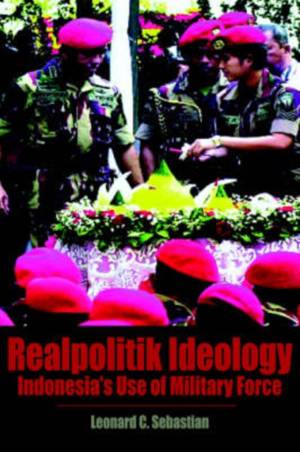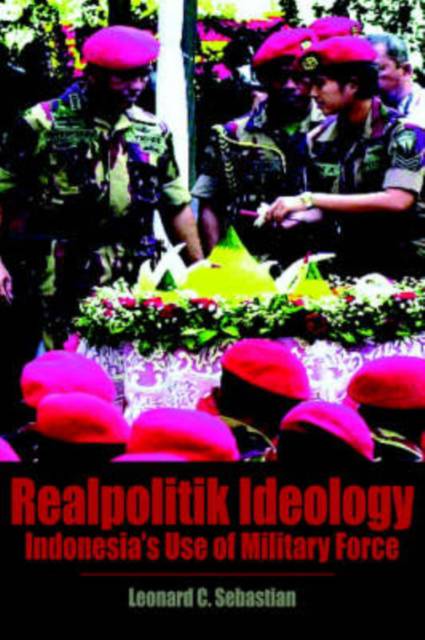
- Retrait gratuit dans votre magasin Club
- 7.000.000 titres dans notre catalogue
- Payer en toute sécurité
- Toujours un magasin près de chez vous
- Retrait gratuit dans votre magasin Club
- 7.000.0000 titres dans notre catalogue
- Payer en toute sécurité
- Toujours un magasin près de chez vous
71,45 €
+ 142 points
Description
Realpolitik Ideology presents path-breaking research on the Indonesian military (TNI) going beyond traditional scholarship on the TNI's dual function or dwifungsi which has been one of the dominating fields of analysis in Indonesian studies since the 1970s. Addressed to political scientists, sociologists, historians, anthropologists and defence practitioners, this book interprets security policy in terms of its social roots asserting that the realpolitik behaviour of the TNI has strong "socio-cultural" undertones, which in turn shape the development of military doctrine. The argument made in the book is that only through a better understanding of the doctrines that reinforced the military's significant presence in Indonesian affairs and their subsequent restructuring can Indonesia's policy-makers attempt meaningful reform of the TNI. Readable, accessible and yet exhaustively researched, Realpolitik Ideology examines the origins and development of ideas on security from the point of view of the TNI and explains why civil-military relations are still fraught with uncertainty, and why the recent changes in military ideology, removal of military posts in the legislature, ongoing divestment of its business, and other measures still do not guarantee that the military will not intervene in the affairs of state. Among its many valuable contributions, this book details: . the background to Indonesian concepts of national security . internal operations and the weak infrastructural power of the state, with an excellent discussion on the intelligence agencies . concepts for external defence, according to the TNI, including Indonesia's important but little-known contribution to UN peacekeeping missions . defence and national security planning . the most recent laws relating to national security and the role of the military in Indonesia. Realpolitik Ideology offers suggestions about how to redefine concepts of national security to increase civil and democratic space and accountabilities and redress the historic imbalances between the civilian government and the military in Indonesia.
Spécifications
Parties prenantes
- Auteur(s) :
- Editeur:
Contenu
- Nombre de pages :
- 600
- Langue:
- Anglais
Caractéristiques
- EAN:
- 9789812303110
- Date de parution :
- 14-10-05
- Format:
- Livre relié
- Format numérique:
- Genaaid
- Dimensions :
- 152 mm x 229 mm
- Poids :
- 1043 g

Les avis
Nous publions uniquement les avis qui respectent les conditions requises. Consultez nos conditions pour les avis.






